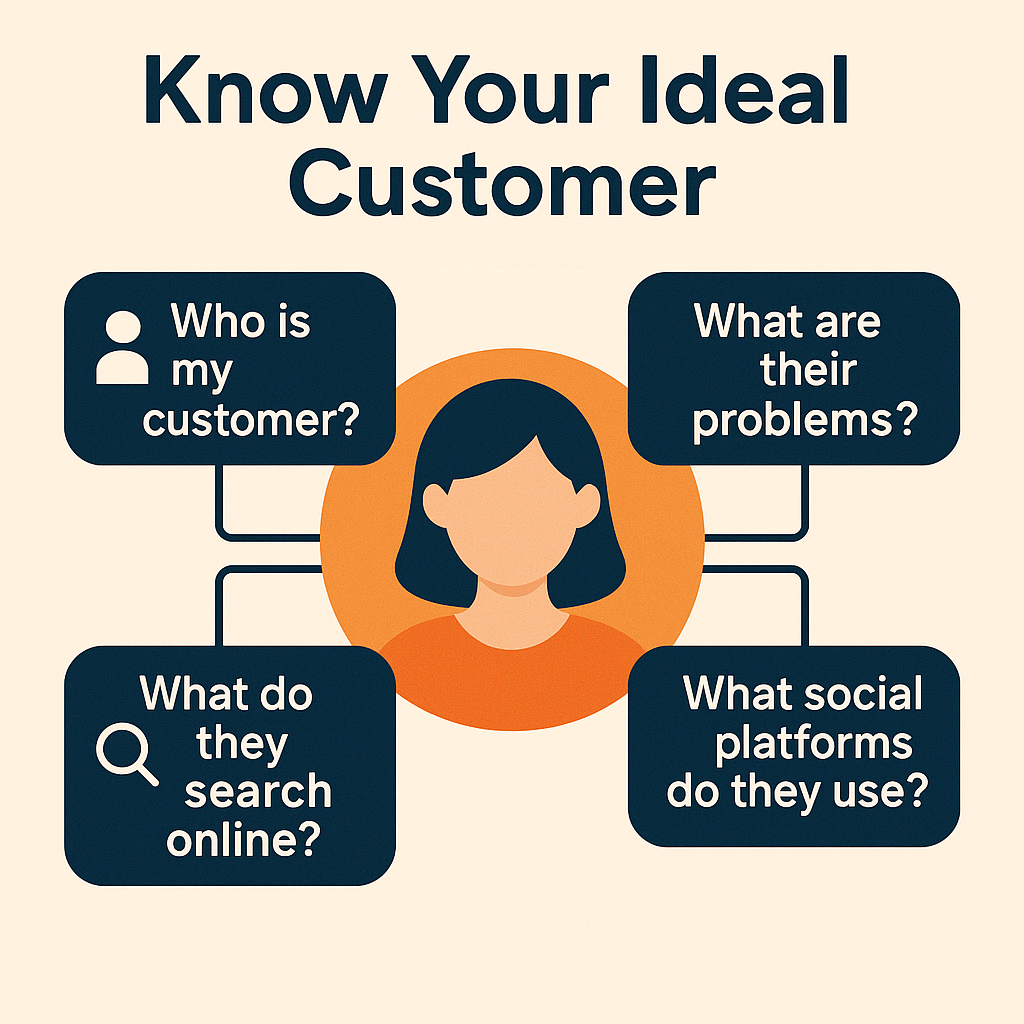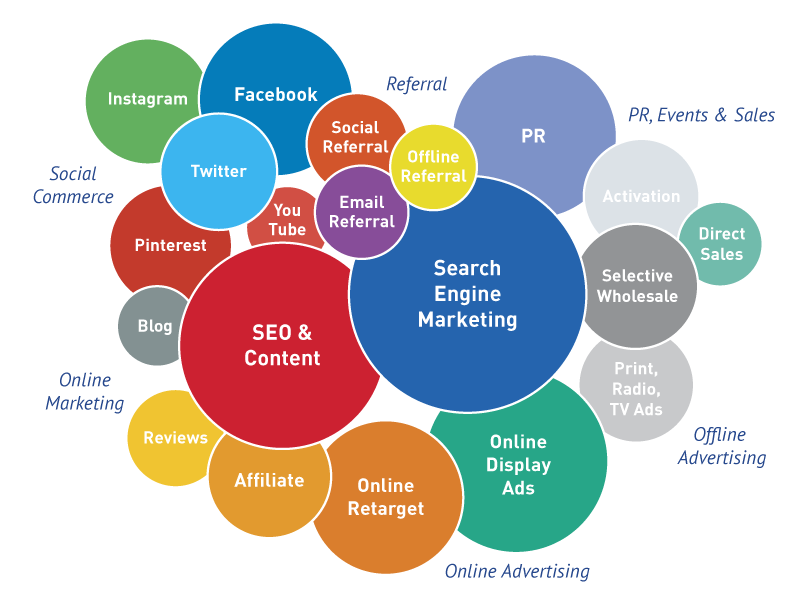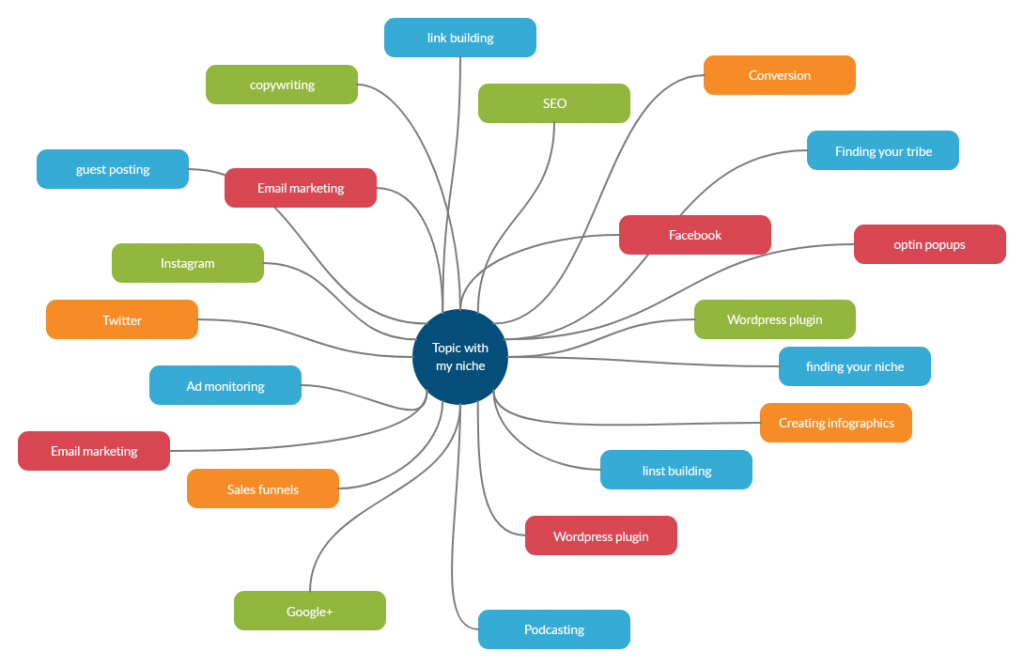Small business online marketing has become essential for every entrepreneur who wants consistent customers, higher visibility, and reliable growth. But with so many tools, platforms, and strategies out there, it’s easy to feel overwhelmed or unsure where to begin.
In this guide, you’ll learn a simple, practical, and effective way to create a marketing plan that actually works—without needing a big budget or advanced technical skills. Whether you’re just starting out or looking to improve your current results, this step-by-step approach will help you market smarter and grow faster.
1. Know Your Ideal Customer
Before spending a single rupee on ads or content, you must understand who you’re targeting.
Ask yourself:
- Who is my customer?
- What are their problems?
- What do they search online?
- What social platforms do they use?
The clearer your customer profile, the easier it becomes to craft high-converting marketing messages.

2. Set Clear, Measurable Goals
Your small business online marketing plan must have specific outcomes.
Examples:
- Increase website traffic by 40% in 90 days
- Generate 200 new leads per month
- Increase Instagram engagement by 25%
- Get 30 new Google reviews in 60 days
Vague goals = poor strategy.
Measurable goals = direction + clarity.
3. Choose the Right Marketing Channels
Not every platform suits every business. The right channels depend on your customer type and business model.
Best channels for small business online marketing:
- Google Business Profile: Essential for local visibility
- Instagram & Facebook: Great for visual and service-based businesses
- YouTube: Perfect for tutorials, product demos, and service education
- Email Marketing: Still one of the highest ROI channels
- Website + Blog: Helps you get free Google traffic over time
- WhatsApp Marketing: Highly effective for follow-ups in India
Identify 2–3 channels to start. Don’t try to be everywhere.

4. Build a Strong Online Presence
A marketing plan is useless if your online presence is weak.
Make sure these are in place:
- A clean, fast website
- Consistent branding across platforms
- Easy ways for customers to contact you
- Trust indicators: reviews, testimonials, case studies
- Clear CTAs: “Book a call,” “WhatsApp us,” “Get a quote,” etc.
Think of your online presence as your digital storefront. Make it inviting.

5. Create Content That Customers Actually Want
Content is the engine behind small business online marketing.
Content you should focus on:
- Helpful blog posts
- Short videos (Reels/Shorts)
- How-to tutorials
- Case studies
- FAQs
- Email newsletters
- Promotional offers
Aim for content that solves problems, answers questions, or inspires.

6. Use Paid Ads Smartly (Optional but Powerful)
If you want quick results, ads are the fastest path—especially for small businesses.
Best paid advertising options:
- Facebook/Instagram ads
- Google search ads
- YouTube ads
- Local awareness ads
- Retargeting ads
Start small. Test different creatives. Track results weekly.
Want a Fast Way to Start Earning Online?
Take this 3-question side hustle quiz, and I’ll show you the BEST online income path for your personality and goals.
7. Track, Measure, and Optimize
A solid small business online marketing plan has one rule:
What gets measured, improves.
Set up:
- Google Analytics
- Meta Insights
- Google Search Console
- WhatsApp click tracking
- Email open and click-through stats
Review your numbers every 7 days. Remove what isn’t working. Double down on what performs well.

8. Stay Consistent (This Is the Secret)
Most small business owners quit too early.
Marketing works only when you stay consistent with:
- Posting
- Emailing
- Updating
- Improving
- Reaching out
- Running ads
A 90-day commitment can transform your online visibility more than anything else.
Want to Discover Your Perfect Online Side Hustle?
Take this simple 3-question quiz and instantly get a personalized side hustle idea based on your skills, time, and earning goals.
9. Example of a Simple Weekly Marketing Routine
Here’s a sample routine to keep your plan on track:
Monday: Post one piece of content (video or blog)
Tuesday: Send one email or WhatsApp broadcast
Wednesday: Engage with followers for 20 minutes
Thursday: Run one small ad test or boost a post
Friday: Review your analytics and adjust
This small weekly structure can grow any business.
Conclusion
Creating a small business online marketing plan that actually works isn’t about complexity—it’s about clarity, consistency, and understanding what truly drives results. When you know your ideal customer, choose the right marketing channels, produce valuable content, and track your progress, your business becomes more visible, more trusted, and more profitable.
Start small. Stay consistent. Improve every week.
That’s the real formula behind successful online marketing for small businesses.




